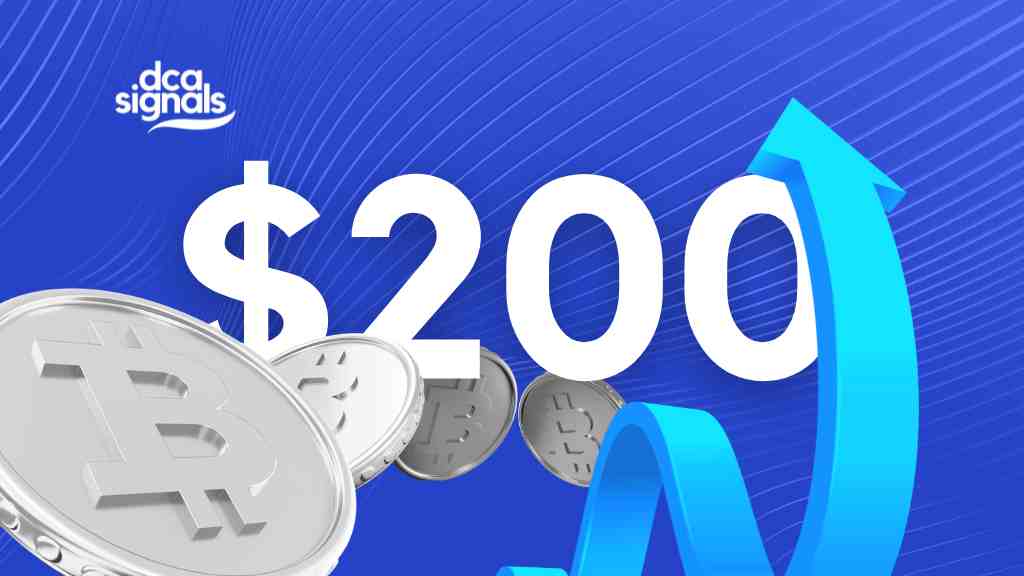Vanguard ETFs are world famous vehicle for investors. In the realm of investing, one strategy has stood the test of time as a reliable approach for both novice and experienced investors alike: Dollar Cost Averaging (DCA).
And when it comes to implementing this strategy with a reputable financial institution, Vanguard ETFs emerge as a prime choice.
Table of Contents
Dollar Cost Averaging White Paper
The time-tested investment approach known as dollar cost averaging, or DCA, entails consistently depositing a set sum of money into a particular investment vehicle at predetermined periods, regardless of market movements. The core of this strategy is to reduce the effects of market volatility by increasing share purchases during periods of low share prices and decreasing share purchases during periods of high share prices.
DCA’s main objective is to reduce the risk involved in trying to time the market. Investors who use DCA and seeking to dive into Vanguard ETFs need to put more emphasis on the long-term performance of their investments rather than trying to forecast the optimal entry points.
Can You Do Dollar Cost Averaging on Vanguard ETFs?
Certainly! Dollar Cost Averaging (DCA) can be effectively implemented with Vanguard ETFs, offering investors a flexible and diversified way to gradually build their investment portfolio over time.
It is possible to think about Vanguard averaging as delaying the date of risk exposure. You spread out your investments over time as opposed to making one large upfront investment. Risk-averse investors looking for a more gradual market introduction may find this to be very enticing.
When an investor chooses to employ the DCA technique, they voluntarily decide against making a single, large investment. They spread out their investments over time instead. As a result, they are initially less exposed to any prospective ups and downs in the market. Their exposure to risk gradually increases as they keep investing at regular periods.
Vanguard ETFs, known for their long-standing commitment to providing low-cost, diversified investment options, aligns with the idea of taking risk later. By choosing DCA, an investor is, in a sense, deferring the full effect of market risk on their portfolio. Risk-averse investors who might be hesitant about making a sizable investment right before a market fall may find this to be particularly intriguing.
How DCA Works with Vanguard ETFs
Let’s walk through a hypothetical scenario to illustrate how DCA can be implemented using Vanguard ETFs:
Imagine an investor wants to invest $500 every month in Vanguard’s Total Stock Market ETF (VTI). Vanguard ETF’s price varies each month due to market fluctuations.
- Month 1: The price of VTI is $150 per share. With the $500 investment, the investor purchases approximately 3.33 shares of VTI.
- Month 2: The price of VTI drops to $130 per share. With the same $500 investment, the investor purchases approximately 3.85 shares.
- Month 3: The price of VTI rises to $160 per share. With the same $500 investment, the investor purchases approximately 3.13 shares.
Over these three months, the investor has invested a total of $1500 and accumulated around 10.31 shares. The average cost per share is approximately $145.45, which is lower than the average price of VTI over the same period ($150 + $130 + $160 / 3 = $146.67).
Dollar Value Investors have an efficient and practical option to establish a diversified portfolio while controlling market risk by averaging with Vanguard ETFs. The values of DCA are well-aligned with Vanguard’s emphasis on low expenses, diversification, and long-term investing. Investors who consistently buy Vanguard ETFs can confidently pursue their financial objectives, take advantage of prospective growth opportunities, and handle market swings.
Vanguard Dollar Cost Averaging vs Lump Sum
Pros of Vanguard Dollar Cost Averaging:
- Risk Mitigation: DCA helps reduce the impact of market volatility on your investments, as you’re buying at various price points over time.
- Emotional Discipline: DCA encourages disciplined investing by removing the urge to time the market based on emotions.
- Consistent Investing: It establishes a habit of consistent investing, regardless of short-term market trends.
Cons of Vanguard Dollar Cost Averaging:
- Potential Missed Gains: If the market experiences a prolonged uptrend, you might miss out on potential gains compared to a lump sum investment.
- Higher Transaction Costs: DCA involves more frequent transactions, which could lead to slightly higher transaction costs over time.
10 Best Performing Vanguard ETFs
Vanguard provides more than 80 exchange-traded funds that can be customized to meet a variety of investing objectives and financial objectives. There are Vanguard ETFs created to accommodate every type of investing choice, from total market equity funds to specialist sector ETFs.
Even better, Vanguard ETFs are renowned for being affordable. In addition to being attractive, the majority have received gold and silver Morningstar rankings, demonstrating the highest level of analyst firm confidence in the fund’s potential for out-performance.
Vanguard ETFs that are categorized as moderate to aggressive are widely diversified but exposed to significant share price movements because they invest almost entirely in common equities. These funds are typically suitable for investors with long investment horizons (ten years or more), who prioritize capital growth, and who are willing to put up with the sudden, sometimes protracted declines in share prices that occasionally occur in the stock market. Common stocks can offer potentially substantial gains in exchange for this price volatility. The funds in this category generate current income that ranges from being moderate to being extremely low.
Here are the 10 best performing Vanguard ETFs:
1. Vanguard S&P 500 ETF
An excellent and remarkably affordable approach for investors to gain exposure to a significant wide market benchmark is through the Vanguard S&P 500 ETF. Additionally, the dividend yield of the fund serves as a stand-in for the yield of the entire stock market. VOO is the benchmark you must surpass if you want to generate more cash flow than the market.
The proportions of the stocks held by VOO match those of the S&P 500 index. Each position is determined by the benchmark’s weighting of a stock’s market capitalization. Due to its low expense ratio, VOO’s performance behind the market by only a small amount. Even better, during the last three, five, and ten years, VOO has outperformed the Morningstar large-cap mix category. With an expense ratio of 0.03%, an annual dividend yield of 1.5% and a 10-year average yield of 11.77%, this ETF sets itself as one of the top Vanguard ETFs to invest in.
| Top 10 Holdings of the Vanguard S&P 500 ETF (VOO) | |
|---|---|
| Holdings | Percentage |
| Apple | 7.11% |
| Microsoft | 6.22% |
| Amazon | 2.67% |
| NVIDIA | 1.98% |
| Alphabet Class A | 1.79% |
| Tesla | 1.62% |
| Berkshire Hathaway Class B | 1.61% |
| Alphabet Class C | 1.57% |
| Meta Class A | 1.37% |
| Exxon Mobil | 1.31% |
| VOO Dividend History | ||||
|---|---|---|---|---|
| Year/ Dividend Amount | 1st Quarter | 2nd Quarter | 3rd Quarter | 4th Quarter |
| 2013 | — | $0.369 | $0.786 | $0.914 |
| 2014 | $0.779 | $0.809 | $0.876 | $1.026 |
| 2015 | $0.984 | $0.902 | $0.953 | $1.092 |
| 2016 | $1.002 | $0.953 | $0.883 | $1.296 |
| 2017 | $0.998 | $1.01 | $1.176 | $1.184 |
| 2018 | $1.084 | $1.157 | $1.207 | $1.289 |
| 2019 | $1.455 | $1.386 | $1.301 | $1.429 |
| 2020 | $1.178 | $1.433 | $1.309 | $1.383 |
| 2021 | $1.263 | $1.333 | $1.308 | $1.533 |
| 2022 | $1.374 | $1.432 | $1.469 | $1.671 |
| 2023 | $1.487 | $1.576 | — | — |
2. Vanguard Dividend Appreciation ETF (VIG)
Market capitalization weighted index products, which are intended to represent the overall market or a specific market segment, have long dominated the ETF market.
For investors who trust in the efficiency of the market, market cap weighted indices are excellent. They offer a cheap, practical, and transparent solution to mimic market returns.
But other investors opt for smart beta funds, which adopt non-cap weighted methods because they think they may outperform the market by making wise stock selections.
These indexes make an effort to select equities that have a higher likelihood of exhibiting favorable risk-return performance based on particular fundamental qualities, or a combination of such.
Investors have a wide range of options in the smart beta market, from the most straightforward strategy—equal weighting—to more intricate ones like fundamental and volatility/momentum-based weighting. But not all of these approaches have been successful in producing outstanding results.
Check out the Vanguard Dividend Appreciation ETF if you’re seeking for a core holding that generates more income than the S&P 500. This fund follows an index made up of equities from businesses with a history of consistently raising their dividends. Because of this, VIG’s dividend yield is around one-fourth more generous than the market’s average, as determined by VOO.
Most dividend payers are reputable businesses with bright futures. They are less erratic than equities of lower caliber because to their strong fundamentals. Since managers only choose companies with a track record of increasing dividends, VIG is somewhat focused. The digital, financial, healthcare, consumer discretionary, and communication services industries are the main focus of its more than 300 holdings. It has an expense ratio of 0.03%, a dividend yield of 1.85% and a 10-year average yield of 11.8% making it a one of the top Vanguard ETFs.
| Ex/EFF DATE | TYPE | CASH AMOUNT | DECLARATION DATE | RECORD DATE | PAYMENT DATE |
|---|---|---|---|---|---|
| 06/29/2023 | CASH | $0.7731 | 03/15/2023 | 06/30/2023 | 07/05/2023 |
| 03/24/2023 | CASH | $0.7489 | 03/15/2023 | 03/27/2023 | 03/29/2023 |
| 12/20/2022 | CASH | $0.8687 | 12/16/2022 | 12/21/2022 | 12/23/2022 |
| 09/19/2022 | CASH | $0.715 | 09/16/2022 | 09/20/2022 | 09/22/2022 |
| 06/21/2022 | CASH | $0.6949 | 06/16/2022 | 06/22/2022 | 06/24/2022 |
| 03/21/2022 | CASH | $0.6939 | 03/17/2022 | 03/22/2022 | 03/24/2022 |
| 12/20/2021 | CASH | $0.7725 | 12/16/2021 | 12/21/2021 | 12/23/2021 |
| 09/20/2021 | CASH | $0.6995 | 09/16/2021 | 09/21/2021 | 09/23/2021 |
| 06/21/2021 | CASH | $0.675 | 06/17/2021 | 06/22/2021 | 06/24/2021 |
| 03/22/2021 | CASH | $0.5131 | 03/18/2021 | 03/23/2021 | 03/25/2021 |
| 12/21/2020 | CASH | $0.6644 | 12/17/2020 | 12/22/2020 | 12/24/2020 |
| 09/29/2020 | CASH | $0.5575 | 09/25/2020 | 09/30/2020 | 10/02/2020 |
| 06/29/2020 | CASH | $0.6006 | 06/25/2020 | 06/30/2020 | 07/02/2020 |
| 03/26/2020 | CASH | $0.474 | 03/25/2020 | 03/27/2020 | 03/31/2020 |
| 12/18/2019 | CASH | $0.5985 | 12/17/2019 | 12/19/2019 | 12/23/2019 |
| 09/24/2019 | CASH | $0.5523 | 09/21/2019 | 09/25/2019 | 09/27/2019 |
| 06/17/2019 | CASH | $0.4734 | 06/14/2019 | 06/18/2019 | 06/20/2019 |
| 03/28/2019 | CASH | $0.5097 | 03/26/2019 | 03/29/2019 | 04/02/2019 |
| 12/17/2018 | CASH | $0.5772 | 12/14/2018 | 12/18/2018 | 12/20/2018 |
| 09/26/2018 | CASH | $0.4981 | 09/25/2018 | 09/27/2018 | 10/01/2018 |
| 06/28/2018 | CASH | $0.5657 | 06/27/2018 | 06/29/2018 | 07/03/2018 |
| 03/26/2018 | CASH | $0.3967 | 03/23/2018 | 03/27/2018 | 03/29/2018 |
| 12/21/2017 | CASH | $0.5461 | 12/19/2017 | 12/22/2017 | 12/27/2017 |
| 09/20/2017 | CASH | $0.43 | 09/18/2017 | 09/21/2017 | 09/25/2017 |
| 06/21/2017 | CASH | $0.518 | 06/19/2017 | 06/23/2017 | 06/27/2017 |
| 03/29/2017 | CASH | $0.425 | 03/27/2017 | 03/31/2017 | 04/04/2017 |
| 12/22/2016 | CASH | $0.577 | 12/20/2016 | 12/27/2016 | 12/29/2016 |
| 09/13/2016 | CASH | $0.393 | 09/09/2016 | 09/15/2016 | 09/19/2016 |
| 06/21/2016 | CASH | $0.446 | 06/17/2016 | 06/23/2016 | 06/27/2016 |
| 03/21/2016 | CASH | $0.41 | 03/17/2016 | 03/23/2016 | 03/28/2016 |
| 12/23/2015 | CASH | $0.475 | 12/21/2015 | 12/28/2015 | 12/30/2015 |
| 09/23/2015 | CASH | $0.443 | 09/21/2015 | 09/25/2015 | 09/29/2015 |
| 06/26/2015 | CASH | $0.442 | 06/24/2015 | 06/30/2015 | 07/02/2015 |
| 03/23/2015 | CASH | $0.459 | 03/19/2015 | 03/25/2015 | 03/27/2015 |
3. Vanguard FTSE All-World ex-US ETF (VEU)
The Vanguard FTSE All-World ex-US ETF is one of the Vanguard ETFs that invests in foreign companies with headquarters outside of the United States.
Given that foreign companies’ performance has often lagged behind that of American stocks over the past eight to ten years, should you avoid buying VEU? No, not always. You might miss out on some excellent investment opportunities if you ignore international company, not to mention the frequently larger dividends paid by overseas corporations. Keep in mind that VEU’s dividend yield is nearly twice as high as VOO’s, a proxy for the entire market.
About 3,600 international growths, value, and mix equities are held by VEU. Large caps are preferred in holdings. The largest industries in VEU are the financial, industrial, technological, and consumer cyclical sectors. Investors seeking a single fund with strong cash flow and potential share price growth to cover their foreign equity allocation can find what they’re seeking in VEU. VEU has an expense ratio of 0.08%, an annual dividend yield of 3.12% and an average 10-year yield of 3.28%.
| DATE | INCOME DISTRIBUTION |
|---|---|
| YTD | $0.72 |
| 2022 | $1.56 |
| 2021 | $1.88 |
| 2020 | $1.16 |
| 2019 | $1.67 |
| 2018 | $1.49 |
| 2017 | $1.45 |
| 2016 | $1.31 |
| 2015 | $1.28 |
| 2014 | $1.65 |
| 2013 | $1.35 |
4. Vanguard Intermediate-Term Bond ETF (BIV)
A fixed-income investment offers stability and income, such as the Vanguard Intermediate-Term Bond ETF. Currently, the second component is especially true. This Vanguard ETF’s dividend yield of 2.80% is calculated using income distributions from the previous 12 months. But if you notice that its SEC yield is 4.44%, feel free to kiss your chops since this metric is based on net investment income earned from the beginning of the previous month to the conclusion of the previous 30 days. So, the dividend yield for BIV is increasing.
What about BIV’s small 10-year average yearly return of 1.08%? Bonds may provide stability and cash flow to a risky all-equity strategy, but what about it? Nevertheless, during the past five, ten, and fifteen years, it has outperformed the returns of its Morningstar intermediate core bond fund category making it one of the most promising Vanguard ETFs.
Top 10 Holdings in BIV
- US TREASURY N/B 2.23%
- US TREASURY N/B 2.19%
- US TREASURY N/B 2.18%
- US TREASURY N/B 2.14%
- US TREASURY N/B 2.12%
- US TREASURY N/B 2.08%
- US TREASURY N/B 2.05%
- US TREASURY N/B 2.01%
- US TREASURY N/B 1.97%
- US TREASURY N/B 1.58%
Distributions History
| Date | Amount | Type |
|---|---|---|
| Aug 04, 2023 | $0.203 | OrdinaryDividend |
| Jul 07, 2023 | $0.192 | OrdinaryDividend |
| Jun 06, 2023 | $0.193 | OrdinaryDividend |
| May 04, 2023 | $0.183 | OrdinaryDividend |
| Apr 06, 2023 | $0.188 | OrdinaryDividend |
| Mar 06, 2023 | $0.163 | OrdinaryDividend |
| Feb 06, 2023 | $0.175 | OrdinaryDividend |
| Dec 29, 2022 | $0.172 | OrdinaryDividend |
| Dec 06, 2022 | $0.161 | OrdinaryDividend |
| Nov 04, 2022 | $0.161 | OrdinaryDividend |
| Oct 06, 2022 | $0.148 | OrdinaryDividend |
| Sep 07, 2022 | $0.148 | OrdinaryDividend |
5. Vanguard ESG U.S. Stock ETF (ESGV)
As more investors look to match their portfolios with their principles, environmental, social, and governance measures, sometimes known as ESG investing, are becoming more and more popular. The Vanguard ESG U.S. Stock ETF provides U.S. all-cap is one of the Vanguard ETFs that focuses on exposure to businesses that adhere to the UN Global Compact’s standards for human rights, fair labor, the environment, and anti-corruption.
A few equities that are associated with adult entertainment, cigarettes, alcohol, gambling, chemical and biological weapons, firearms, coal, oil, and gas are not purchased by ESGV. Additionally, it accomplishes its goal at a very low cost.
Almost all of the 1,500 or more firms in the portfolio are large-cap stocks with a growth or blend bias. The fund’s five-year earnings growth rate of 18.7% is respectable. That is a modest improvement over the S&P 500 of about 1%. This Vanguard ETFs interests in the technology sector make up about one-third of the total. Healthcare, financials, and consumer discretionary stocks make up its next three largest sectors.
Top 10 Holdings
- APPLE INC 7.94%
- MICROSOFT CORP 7.32%
- AMAZON.COM INC 3.19%
- NVIDIA CORP 2.67%
- ALPHABET INC-C 2.09%
- ALPHABET INC-A 2.04%
- META PLATFORMS-A 1.76%
- TESLA INC 1.57%
- UNITEDHEALTH GRP 1.36%
- JP MORGAN CHASE 1.18%
Distributions History
| Date | Amount | Type |
|---|---|---|
| Jun 22, 2023 | $0.208 | OrdinaryDividend |
| Mar 22, 2023 | $0.193 | OrdinaryDividend |
| Dec 21, 2022 | $0.315 | OrdinaryDividend |
| Sep 21, 2022 | $0.231 | OrdinaryDividend |
| Jun 23, 2022 | $0.208 | OrdinaryDividend |
| Mar 23, 2022 | $0.178 | OrdinaryDividend |
| Dec 22, 2021 | $0.262 | OrdinaryDividend |
| Sep 22, 2021 | $0.236 | OrdinaryDividend |
| Jun 23, 2021 | $0.180 | OrdinaryDividend |
| Mar 24, 2021 | $0.156 | OrdinaryDividend |
| Dec 23, 2020 | $0.239 | OrdinaryDividend |
| Sep 24, 2020 | $0.193 | OrdinaryDividend |
6. Vanguard Health Care ETF (VHT)
About 400 equities of firms in the medical and healthcare products, services, technology, and equipment sectors are held by the Vanguard Health Care ETF. A five-year earnings growth rate of roughly 24% is reported for the fund. The majority of the top 10 holdings are well-known healthcare organizations. More than 40% of this Vanguard ETF is made up of them.
A significant positive factor supporting Vanguard Health Care ETF is the rising number of older Americans. The 65+ age group gained 38% between 2010 and 2021, making it the demographic segment with the greatest growth rate, according to USAfacts.org. This is the one of the Vanguard ETFs that has a liking for the healthcare sector.
Top 10 Holdings
- UNITEDHEALTH GRP 8.22%
- JOHNSONJOHNSON 7.32%
- ELI LILLY CO 6.27%
- MERCK CO 5.06%
- ABBVIE INC 4.41%
- PFIZER INC 3.86%
- THERMO FISHER 3.60%
- ABBOTT LABS 3.21%
- DANAHER CORP 2.87%
- BRISTOL-MYER SQB 2.48%
Distributions History
| Date | Amount | Type |
|---|---|---|
| Jul 05, 2023 | $0.877 | OrdinaryDividend |
| Mar 29, 2023 | $0.759 | OrdinaryDividend |
| Dec 20, 2022 | $0.980 | OrdinaryDividend |
| Oct 03, 2022 | $0.821 | OrdinaryDividend |
| Jun 28, 2022 | $0.773 | OrdinaryDividend |
| Mar 29, 2022 | $0.722 | OrdinaryDividend |
| Dec 21, 2021 | $0.818 | OrdinaryDividend |
| Oct 04, 2021 | $0.893 | OrdinaryDividend |
| Jun 29, 2021 | $0.699 | OrdinaryDividend |
| Mar 31, 2021 | $0.635 | OrdinaryDividend |
| Dec 22, 2020 | $0.882 | OrdinaryDividend |
| Sep 16, 2020 | $0.631 | OrdinaryDividend |
7. Vanguard Growth ETF (VUG)
About 240 large-cap U.S. growth companies are accessible to growth investors at low cost through the Vanguard Growth ETF. This Vanguard ETFs share of technology stocks is greater than 40%. The fund’s second-largest sector is consumer cyclicals, followed by the telecom industry.
Volatile VUG is a downside. The greatest return techniques also have difficulty maintaining their superiority. However, this fund is not a passing fad. Over the last five, ten, and fifteen years, it outperformed both the S&P 500 and the fund’s large-cap growth Morningstar peer group in terms of average annual return.
Investors looking to increase their bets on leading technology and consumer discretionary companies should consider adding the Vanguard ETF VUG to a diversified portfolio.
Top 10 Holdings
- APPLE INC 13.44%
- MICROSOFT CORP 11.64%
- AMAZON.COM INC 4.88%
- NVIDIA CORP 3.52%
- ALPHABET INC-A 3.35%
- TESLA INC 3.03%
- ALPHABET INC-C 2.86%
- VISA INC-CLASS A 1.92%
- MASTERCARD INC-A 1.68%
- HOME DEPOT INC 1.63%
Distributions History
| Date | Amount | Type |
|---|---|---|
| Jun 28, 2023 | $0.412 | OrdinaryDividend |
| Mar 28, 2023 | $0.429 | OrdinaryDividend |
| Dec 28, 2022 | $0.448 | OrdinaryDividend |
| Sep 28, 2022 | $0.430 | OrdinaryDividend |
| Jun 28, 2022 | $0.321 | OrdinaryDividend |
| Mar 28, 2022 | $0.301 | OrdinaryDividend |
| Dec 30, 2021 | $0.469 | OrdinaryDividend |
| Sep 29, 2021 | $0.317 | OrdinaryDividend |
| Jun 29, 2021 | $0.374 | OrdinaryDividend |
| Mar 30, 2021 | $0.381 | OrdinaryDividend |
| Dec 30, 2020 | $0.461 | OrdinaryDividend |
| Sep 30, 2020 | $0.406 | OrdinaryDividend |
8. Vanguard Small-Cap Value ETF (VBR)
American small-cap companies with appealing valuations are held by the Vanguard Small-Cap Value ETF. The fund’s holdings total about 850, making it well-diversified. The top 10 holdings of the fund represent about 5% of the capital of its shareholders. Over the last five, ten, and fifteen years, VBR has exceeded Morningstar’s small-cap value category, but it has underperformed the S&P 500, which represents the market as a whole.
Nevertheless, VBR’s dividend yield above the average of the market. In addition, despite recent under-performance, the small cap value approach has historically outperformed other strategies, such as large size growth. Another benefit is that investors are paying roughly $1 for every $10 in earnings thanks to VBR’s low price-earnings ratio of about 10. Compare that to VOO, the S&P 500 proxy ETF, which has a frothy P/E ratio of about 22. This is one of the Vanguard ETF focuses on small-cap companies with long term potential.
Top 10 Holdings
- Vanguard Market Liquidity Fund 1.01%
- IDEX CORP 0.69%
- RELIANCE STEEL 0.60%
- ATMOS ENERGY 0.59%
- BUNGE LTD 0.56%
- BUILDERS FIRSTSO 0.52%
- GAMING AND LEISU 0.51%
- BOOZ ALLEN HAMIL 0.48%
- KIMCO REALTY 0.48%
- CARLISLE COS INC 0.46%
Distributions History
| Date | Amount | Type |
|---|---|---|
| Jun 28, 2023 | $0.887 | OrdinaryDividend |
| Mar 28, 2023 | $0.892 | OrdinaryDividend |
| Dec 28, 2022 | $1.119 | OrdinaryDividend |
| Sep 28, 2022 | $0.771 | OrdinaryDividend |
| Jun 28, 2022 | $0.712 | OrdinaryDividend |
| Mar 28, 2022 | $0.626 | OrdinaryDividend |
| Dec 30, 2021 | $1.182 | OrdinaryDividend |
| Sep 29, 2021 | $0.662 | OrdinaryDividend |
| Jun 29, 2021 | $0.651 | OrdinaryDividend |
| Mar 30, 2021 | $0.636 | OrdinaryDividend |
| Dec 30, 2020 | $0.876 | OrdinaryDividend |
| Sep 30, 2020 | $0.620 | OrdinaryDividend |
9. Vanguard FTSE Pacific ETF (VPL)
A strategy to invest in businesses headquartered along the Pacific rim is via the Vanguard FTSE Pacific ETF. The fund owns around 2,500 shares of stock in businesses with headquarters in Singapore, Australia, Hong Kong, New Zealand, and Japan.
A little over 55% of the fund is invested in Japanese-based businesses. Another 20% or so is invested in Australian stocks. The markets with the next highest exposures are Korea, Hong Kong, Singapore, and New Zealand.
Internationally renowned companies are part of this Vanguard ETFs holdings including Samsung, Toyota, and Sony are among the top 10 holdings. International investors can access large companies in the developed Pacific markets at a reasonable cost thanks to VPL. Over the previous five years, VPL lagged VEU, but over the previous ten and fifteen years, VPL outperformed.
Top 10 Holdings
- SAMSUNG ELECTRON 3.13%
- TOYOTA MOTOR 2.21%
- BHP GROUP LTD 2.01%
- AIA 1.71%
- COMMONW BK AUSTR 1.50%
- SONY GROUP CORP 1.50%
- Vanguard Market Liquidity Fund 1.33%
- CSL LTD 1.29%
- KEYENCE CORP 1.18%
- MITSUBISHI UFJ F 0.98%
Distributions History
| Date | Amount | Type |
|---|---|---|
| Jun 23, 2023 | $0.521 | OrdinaryDividend |
| Mar 23, 2023 | $0.146 | OrdinaryDividend |
| Dec 22, 2022 | $1.026 | OrdinaryDividend |
| Sep 22, 2022 | $0.149 | OrdinaryDividend |
| Jun 24, 2022 | $0.545 | OrdinaryDividend |
| Mar 24, 2022 | $0.052 | OrdinaryDividend |
| Dec 23, 2021 | $1.471 | OrdinaryDividend |
| Sep 23, 2021 | $0.363 | OrdinaryDividend |
| Jun 24, 2021 | $0.495 | OrdinaryDividend |
| Mar 25, 2021 | $0.157 | OrdinaryDividend |
| Dec 24, 2020 | $0.882 | OrdinaryDividend |
| Sep 24, 2020 | $0.314 | OrdinaryDividend |
10. Vanguard Short-Term Corporate Bond ETF (VCSH)
Investors seeking above-average yield should take a look at the Vanguard Short-Term Corporate Bond ETF. VCSH offers you a broad portfolio of short-term corporate bonds in one fund. This is one of the Vanguard ETFs that is less volatile than longer-term, fixed-income ETFs and equity funds. The entire portfolio consists of investment grade debt.
A low 2.69 average effective duration means that if interest rates decline 1%, investors can expect a 2.69% increase in the value of the fund, and vice versa. That’s a sign of low volatility. VCSH looks appropriate for yield-seeking investors who prefer low price volatility.
Top 10 Holdings
- BANK OF AMER CRP 0.23%
- JPMORGAN CHASE 0.23%
- Vanguard Market Liquidity Fund 0.22%
- VISA INC 0.22%
- BOEING CO 0.22%
- DELL INT / EMC 0.22%
- CVS HEALTH CORP 0.21%
- AMGEN INC 0.21%
- BANK OF AMER CRP 0.21%
- GOLDMAN SACHS GP 0.20%
Distributions History
| Date | Amount | Type |
|---|---|---|
| Aug 04, 2023 | $0.198 | OrdinaryDividend |
| Jul 07, 2023 | $0.192 | OrdinaryDividend |
| Jun 06, 2023 | $0.195 | OrdinaryDividend |
| May 04, 2023 | $0.183 | OrdinaryDividend |
| Apr 06, 2023 | $0.191 | OrdinaryDividend |
| Mar 06, 2023 | $0.164 | OrdinaryDividend |
| Feb 06, 2023 | $0.172 | OrdinaryDividend |
| Dec 29, 2022 | $0.169 | OrdinaryDividend |
| Dec 06, 2022 | $0.150 | OrdinaryDividend |
| Nov 04, 2022 | $0.148 | OrdinaryDividend |
| Oct 06, 2022 | $0.144 | OrdinaryDividend |
| Sep 07, 2022 | $0.136 | OrdinaryDividend |
Pros and Cons of Vanguard Dollar Cost Averaging
| Pros of Dollar Cost Averaging Vanguard ETFs | Cons of Dollar Cost Averaging Vanguard ETFs |
|---|---|
| 1. Risk Mitigation: DCA of Vanguard ETFs reduces the impact of market volatility by buying more shares when prices are low and fewer shares when prices are high. | 1. Missed Potential Gains: During periods of strong market growth, DCA Vanguard ETFs may result in missing out on potential gains that could have been achieved through a lump sum investment. |
| 2. Emotional Discipline: DCA encourages disciplined investing by removing the need to time the market based on emotions. | 2. Higher Transaction Costs: Frequent transactions involved in DCA of Vanguard ETFs could lead to slightly higher transaction costs over time. |
| 3. Consistent Investing: DCA establishes a habit of consistent investing, regardless of short-term market trends. | 3. Potential for Lower Returns: Since DCA involves gradual entry into the market, returns might be lower than if a lump sum were invested at the optimal time. |
| 4. Averaging Effects: Over time, the average cost per share of Vanguard ETFs tends to be lower than the average of market prices, potentially enhancing overall returns. | 4. Potential for Prolonged Market Downtrends: In cases of extended market downturns, DCA of Vanguard ETFs may not fully shield the investor from losses. |
| 5. Long-Term Perspective: DCA aligns with a long-term investment perspective, focusing on the potential for growth over time. | 5. Requires Patience: DCA of Vanguard ETFs requires patience as the full benefits may not be immediately apparent, and it may take time to see significant results. |
| 6. Psychological Comfort: By avoiding the need to time the market, DCA of Vanguard ETFs can help investors feel more comfortable during market fluctuations. | 6. Requires Regular Contributions: Consistently contributing funds to the Vanguard ETFs is essential for the success of the DCA strategy. |
Investors have a trustworthy way to manage the complexity of the investment world thanks to Vanguard Dollar Cost Averaging. Investors can set themselves up for long-term success by dispersing risk over time and adopting a disciplined strategy. Vanguard ETFs’ DCA plan can be a useful tool on your investment path, whether your goal is to leave the grind or ensure your financial future. Remember that while there may not be a one-size-fits-all answer, knowing the advantages and disadvantages of DCA can help you make decisions that are in line with your financial objectives.
Frequently Asked Questions – FAQ
Is Dollar Cost Averaging only suitable for beginners?
No, Dollar Cost Averaging of Vanguard ETFs is suitable for investors of all levels. It provides a disciplined approach to investing and can help manage risk.
Can I change my investment amount during DCA of Vanguard ETFs?
Yes, you can adjust your investment amount based on your financial circumstances and goals.
Does Vanguard offer guidance on which ETFs to choose for DCA?
Yes, Vanguard provides resources and information to help you choose ETFs that align with your investment objectives.
What’s the ideal interval for DCA of Vanguard ETFs?
The interval can vary based on personal preference. Monthly or quarterly intervals are common choices.
Can I combine DCA with other investment strategies?
Absolutely, DCA can be part of a diversified investment approach that includes other strategies like lump sum investing and re balancing.
Do people pay taxes on Vanguard ETFs?
Yes, investors typically pay taxes on Vanguard ETFs, just as they would with other types of investments. The tax implications of investing in Vanguard ETFs can vary depending on several factors, including the type of account in which the ETFs are held and the specific transactions that occur within that account.









